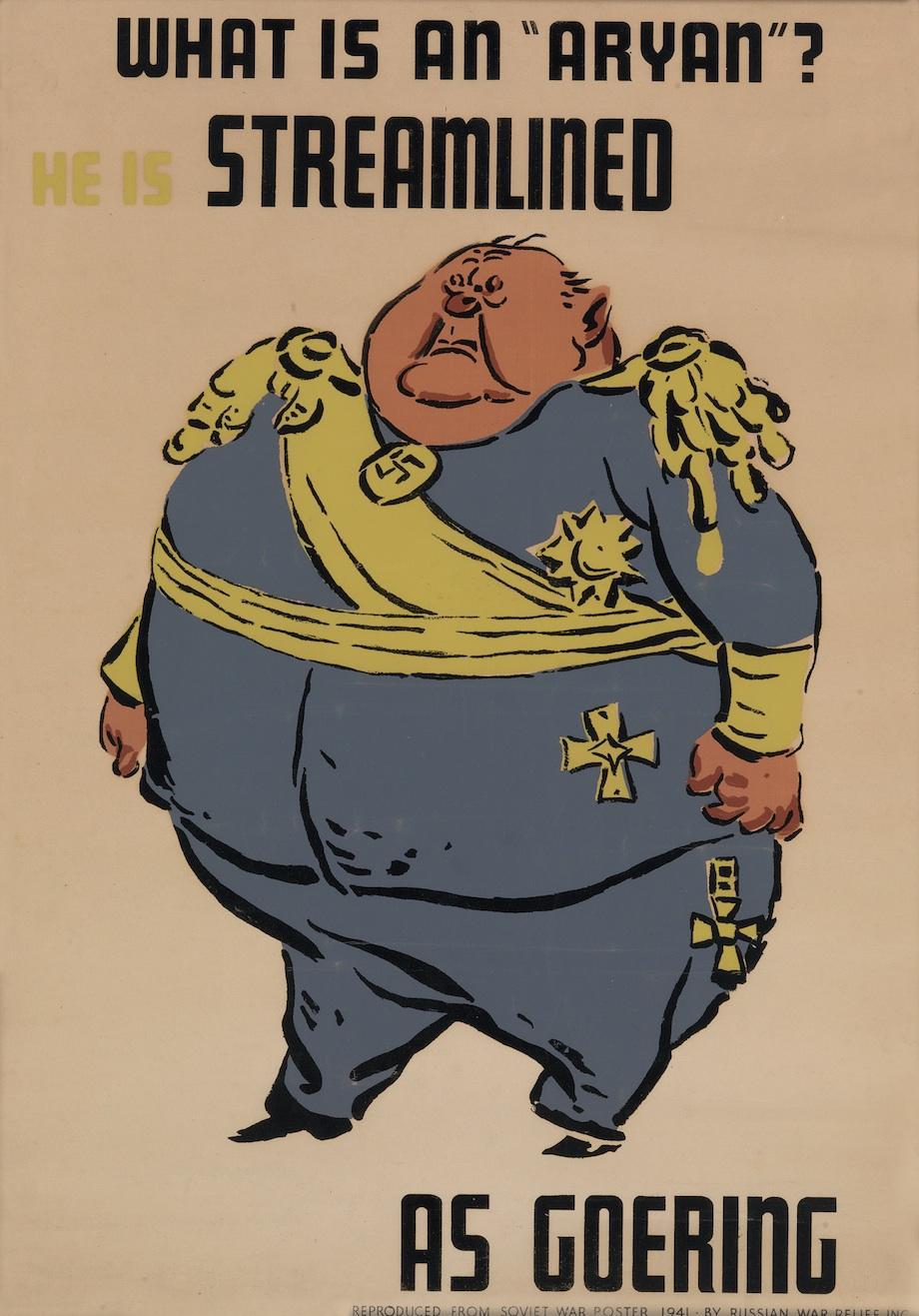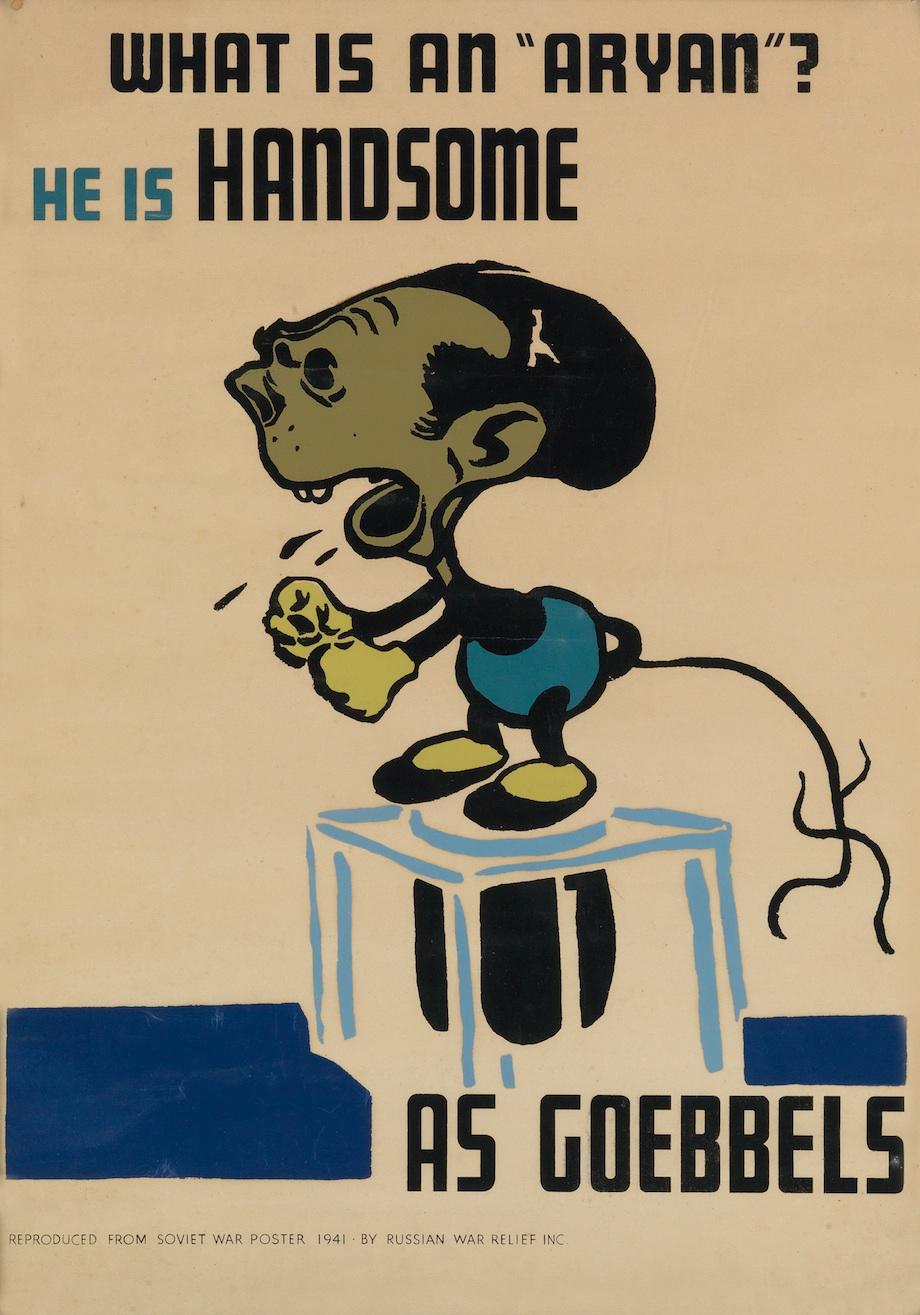The Vault is Slate’s history blog. Like us on Facebook, follow us on Twitter @slatevault, and find us on Tumblr. Find out more about what this space is all about here.
These posters, which lampoon Nazi leaders whose physical attributes don’t match their exalted rhetoric about the “Aryan race,” were originally illustrated by the Russian artist Boris Efimov and distributed through the TASS News Agency’s poster studio. One shows the 5-foot-5 and cadaverous propaganda minister Joseph Goebbels standing on a table to give a speech, while the other mocks Hitler’s deputy (and head of the Luftwaffe) Hermann Göring, who was anything but “streamlined.”
The nonprofit Russian War Relief, a group soliciting aid for the Russian home front, reproduced these posters in English in 1941 and distributed them in the U.S. By showcasing Russia’s steadfastness and sense of humor in combating the Nazi threat, the organization hoped to cement American support for its humanitarian efforts.
In an August 1942 issue of Life magazine, an admiring article on Russian war posters featured Efimov’s works, along with those of several other artists. Calling the posters “colorful and forceful,” Life’s editors approvingly described the quick turnaround in Russian poster production and the images’ ubiquity in Russian public life. “People memorize the jingles” on the posters, they wrote, “and Russian soldiers make sketches of new posters to bring back to men on the front.”
Efimov, who was of Russian Jewish ethnicity and whose own brother was killed as an “enemy of the state” in 1940, had an uneasy relationship with the Russian regime. He was born in 1900, died in 2008, and worked as a political cartoonist for those in power for most of his life. In a 1998 interview with PBS, Efimov described the difficulties he faced after the war, when the targets of the propaganda he produced for the state shifted:
I was often impressed by Churchill, by his will, by his wonderful oratory talent, his jokes. I really liked him. And then it was announced that he was our enemy, and we had to draw cartoons about him, and when I drew him looking in the mirror and seeing a reflection of Hitler, that was, for me, not convincing and not pleasant.
The prints go on sale through Swann Auction Galleries on Aug. 7.

Illustration by Boris Efimov, 1941. Image courtesy of Swann Auction Galleries.

Illustration by Boris Efimov, 1941. Image courtesy of Swann Auction Galleries.